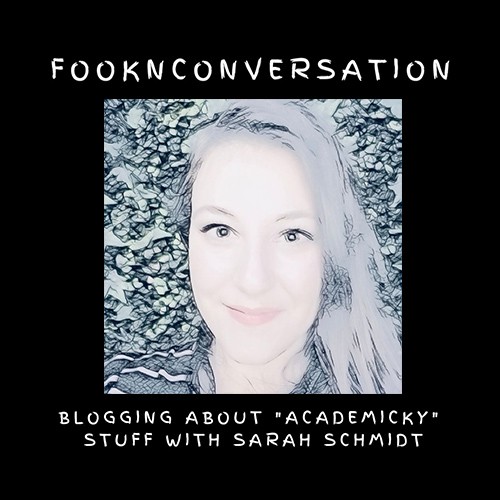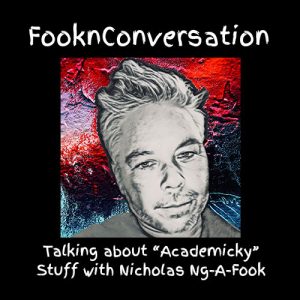
A blog by Sarah Schmidt.
As a person of white privilege, working in a female and white-dominated profession of librarianship, listening and reading Vidya Shah while reflecting on the local and global events of the last few weeks’ left me with the need to sit, listen, and contemplate deeply on how to move forward, especially while in a remote and virtual environment, to navigate issues and supporting the students and colleagues of the college library at which I work. As I sat, I found myself returning to these three songs as music often more effectively embodies what I need and want to say:
- Stellenbosch University Choir – Snow Dance for the Dead (composed by Seán Doherty)
- Stellebosch University Choir – Let My Love Be Heard (composed by Jake Runestad)
- Mandolin Orange – Wildfire
Amongst the cruelties and divisions occurring amongst this time of pandemic and most recent iterations of racism and inequalities, Shah emphasizes a silver lining in the form of a “global pause” (Ng-A-Fook, 2020). Shah suggests taking this opportunity to reevaluate and challenge the structures that define learning while continuing to propagate racist constructs and inequalities that harm and dismiss learners (Ng-A-Fook, 2020). To redefine the structures of learning, whether in physical or virtual contexts, the incorporation of the concepts of reflection and action outlined in Furman’s Praxis-Dimensions-Capacities Framework (Shah, 2018) are beneficial in recognizing and identifying positions of privilege, but also to use as a starting point for establishing an educational and knowledge community representative of the varied voices and experiences held by learners. These concepts and dimensions emphasized a specific need to reconsider the role that public and academic libraries, and their current closures, play in ensuring an accessible environment for learning and sharing ideas.
Libraries carry an image of inclusion, openness, a place for learning, and a repository of knowledge and different narratives. But what is the process to ensure all this information selected, collected, organized, and accessible? Just a brief critical assessment reveals, as Shah (2018) reminds us, a variety of layers of individual and systemic contribution to inequalities experienced by the same users/learners libraries and librarians outwardly seek to support. The unconscious biased curation of ideas and narratives, Eurocentric terminologies used for organization of information, and the current technological requirements for continued or partial access to resources in an online capacity are just some examples of contributions to societal gaps and misrepresentation of individuals, groups, and cultures. Libraries and librarians readily accept and participate in the preconstructed identity of a hub of information and community that is open to all. However, relying on this simplistic and idealistic identity is a slippery slope. This is not to say that every library and librarian ignorantly subscribes to all the idealistic narratives. However, ongoing security measures at Winnipeg’s Millenium Branch (Hatherly, 2020), the 2019 room bookings at Toronto Public Library (Canadian Association of Professional Academic Librarians Board, 2019), and library closures and reliance on online resources during the Pandemic (Johnston, 2020; Capel-Stanley, 2020) are just a few mainstream instances where there has been a lack of critical consideration leading to libraries consciously or unconsciously contributing to widening the gap of inequity instead of the actual goal to reduce barriers. It is time to step out from behind the safety blanket of an idealistic and self-serving saviour identity. To rectify this imbalance between identity and support for diverse perspectives and knowledge opportunities, perhaps Shah’s (2019, 2018) suggested process of self-evaluation can be effective in reimagining learning structures. And so as a librarian, such self-evaluation must commit to an “ongoing interrogation” in combination with the processes of “dis-identification” at individual, interpersonal, communal, and systemic levels and recursively question my internal bias and outward privileges in relation to the voices, lived experiences, and contexts that remain excluded from our curriculum-as-planned, -implemented, and -lived.
References:
Canadian Association of Professional Academic Librarians Board. (2019, October 29). CAPAL statement on the Toronto Public Library’s October 29, 2019 Meghan Murphy event. https://capalibrarians.org/wp/wp-content/uploads/2019/12/Toronto-Public-Library-Meghan-Murphy.pdf
Hatherly, D. (2020, February 25). Barricades, bag checks at Millenium ‘mistakes,’ library manager says. CBC. https://www.cbc.ca/news/canada/manitoba/millennium-library-security-mistake-city-manager-1.5474990
Johnston, J. (2020, May 1). Demand for online library content soars during pandemic. CBC. https://www.cbc.ca/news/canada/british-columbia/libraries-online-services-covid-19-1.5551682
Capel-Stanley, C. (2020, April 22). Library coronavirus lockdown cuts off disadvantaged Australians from digital world. The Guardian. https://www.theguardian.com/world/2020/apr/22/library-coronavirus-lockdown-cuts-off-disadvantaged-australians-from-digital-world#maincontent
Ng-A-Fook, N. (Host). (2020, April 22). Episode 4: Vidya Shah [Audio podcast episode]. In Fooknconversation. https://www.fooknconversation.com/podcast/episode-04-vidya-shah/
Shah, V. (2019). Calling in the self: Centering socially engaged Buddhism in critical pedagogy through personal narrative. International Journal of Critical Pedagogy, 10(2), 45-68.
Shah, V. (2018). Leadership for social justice through the lens of self- identified, racially and other-privileged leaders. Journal of Global Citizenship and Equity Education. 6(1), 1-41.

